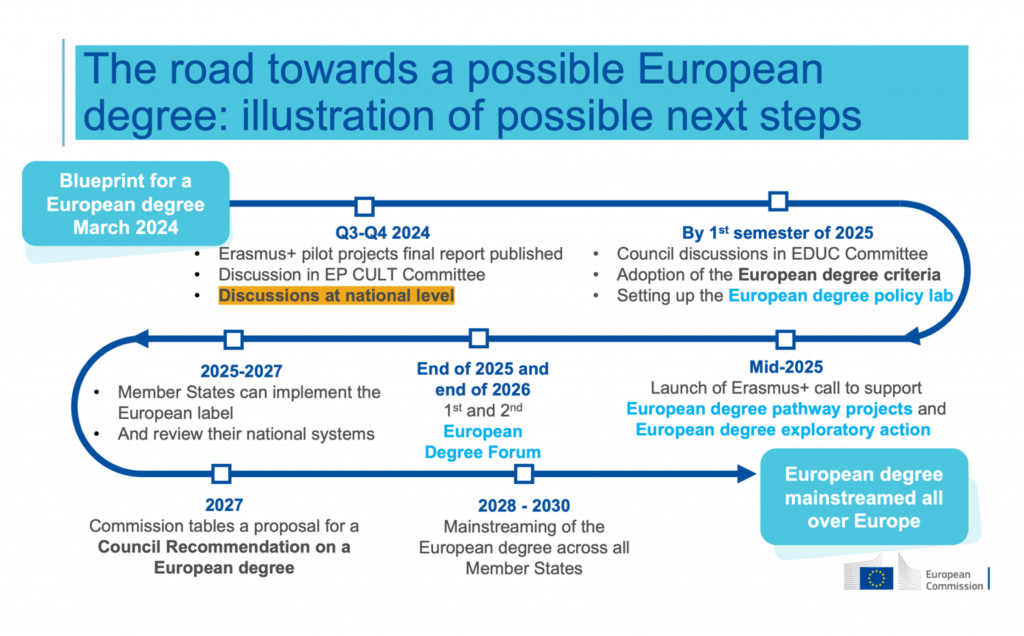Stay in the loop! Subscribe to our mailing list
The Education, Youth, Culture and Sport Council (EYCS) met on 25-26 November 2024, under the Hungarian Presidency chairmanship. In the field of higher education, the Council discussed the topics included in the EU Higher Education package, among others (for more details, see ACA Newsletter – Education Europe, March 2024):
The ministerial representatives expressed both trust in the potential of the European degree, as well as of the European Universities alliances, to address the skills gap – seeing them as (important) tools in a broader set of measures needed to ensure that Europe stops playing ‘catch-up’ with its greatest competitors, the US and China – but also invited for caution.
Some interventions also underlined the need for not only flagship initiatives, but also for securing a sound and comparative budget, and for diversified tools, advocating for a more cautious, step-by-step approach, building on evidence, lessons learnt and a comprehensive impact assessment before the full roll-out of the European degree label. Amongst the member states’ main concerns are the risk of creating a two-tier system of “elite European Universities and struggling domestic institutions” (cf. the Slovene intervention) and thus an “uneven playing field (cf. the Estonian intervention) despite trying to do the opposite. The Swedish contribution stressed the need to further verify with the labour market the need for a European degree. While in the further development of the European criteria, the Dutch intervention called for “a more process-oriented” approach, cautioning that the current one risks infringing academic freedom.
The current timeline of the European Commission for the further development of the European degree is as follows (subject to potential future amendments):
